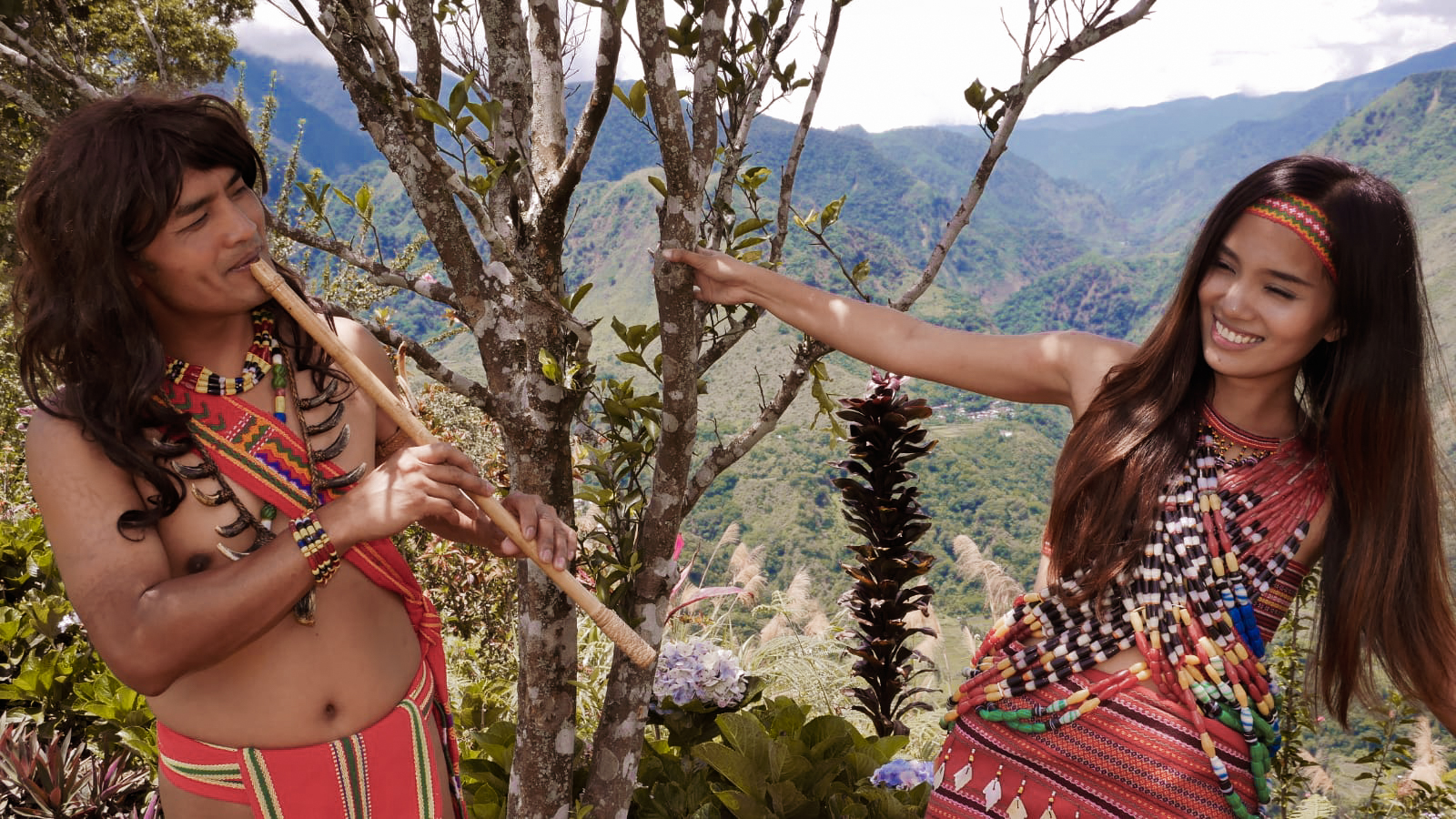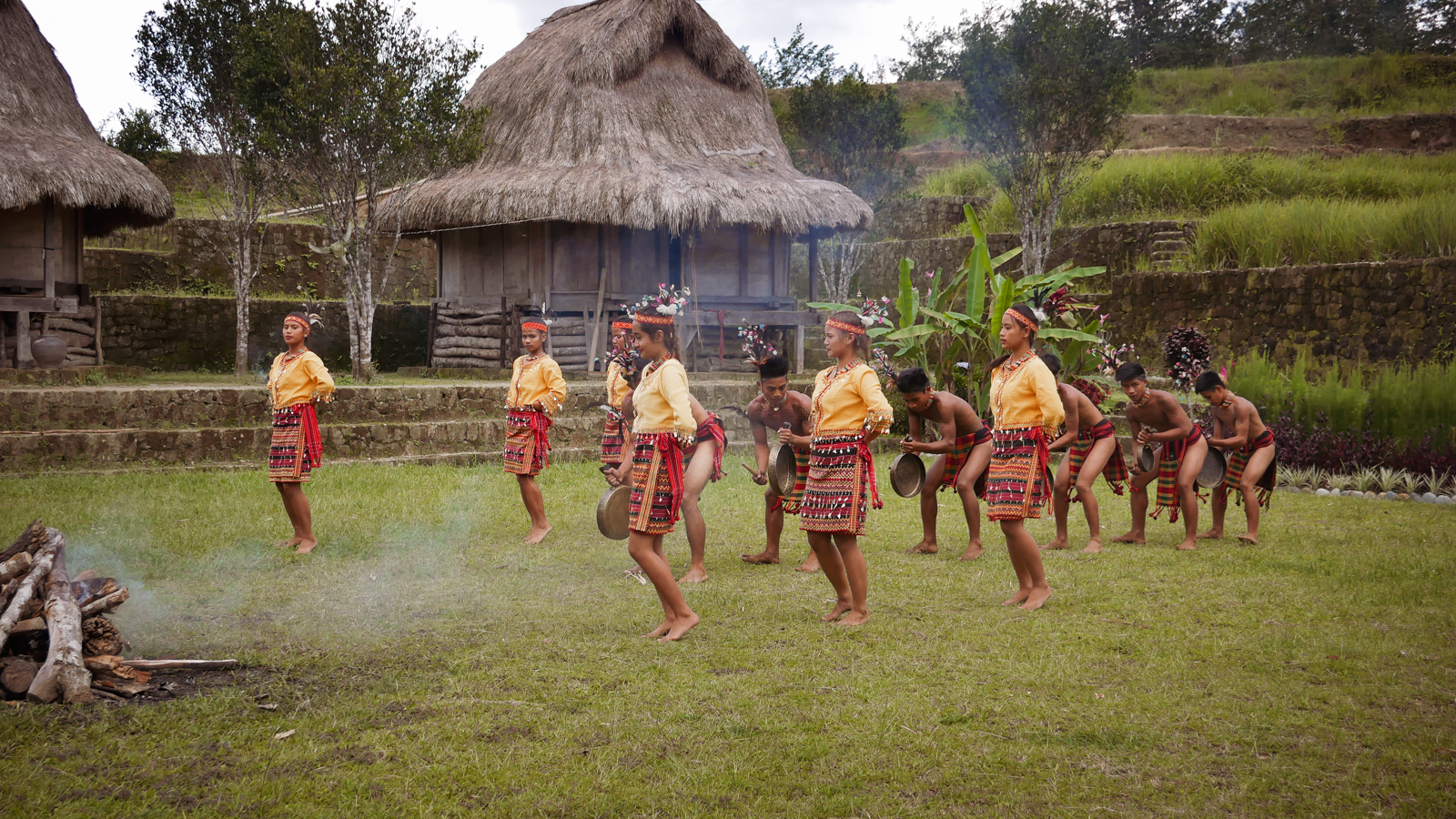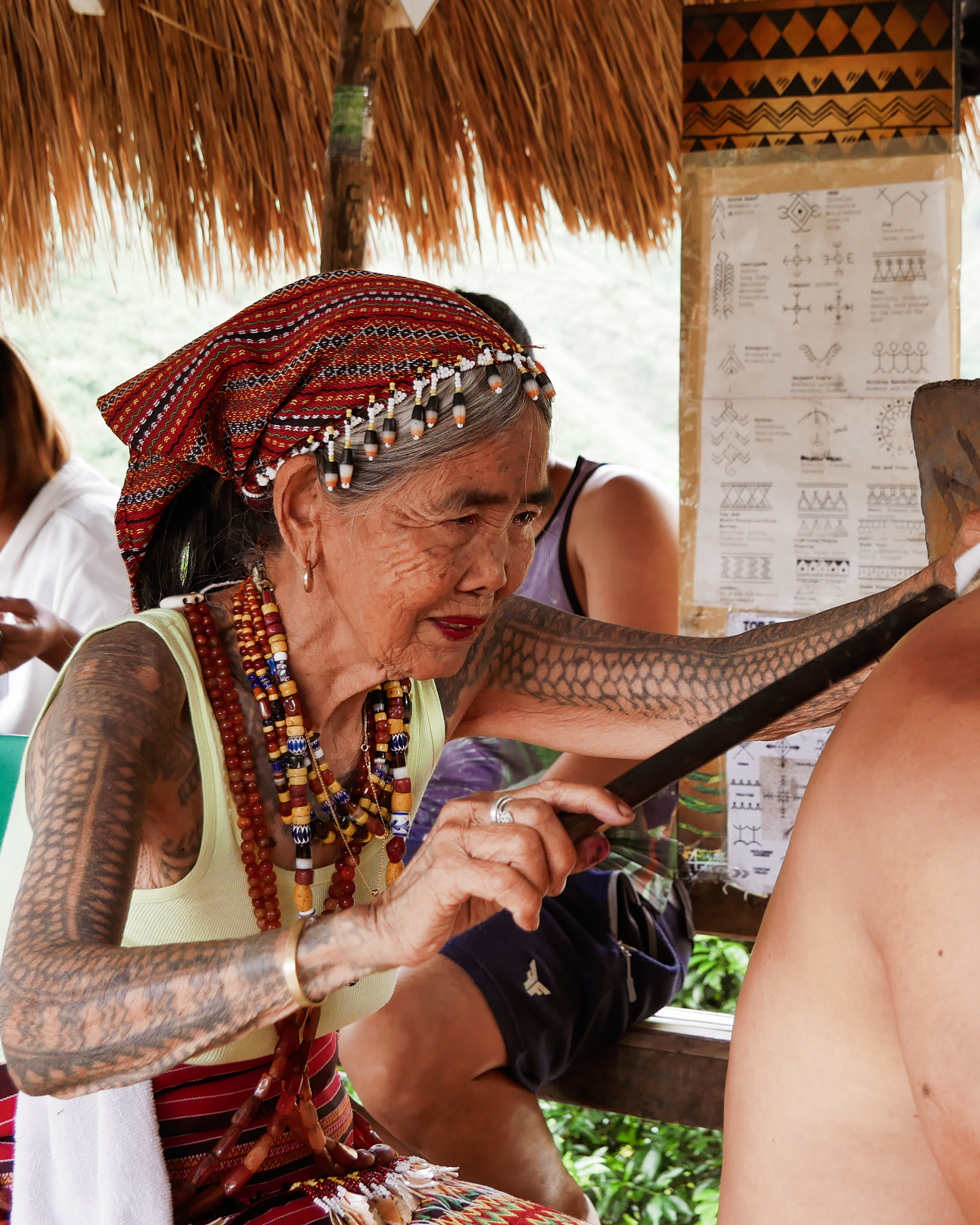Courtesy of Reza Moosaei
The famed mambabatok was once young and in love.
In Buscalan, a tour guide might joke that the X-shaped tattoos found on the locals indicate the number of ex-lovers one has had. While this is improbable, the tattooed elders of Kalinga have been known to ink their arms with the names of their loved ones. Apo Whang-Od, who had many boyfriends throughout her long life, has often spoken about her one true love, someone who died when she was a young woman. This tragic affair has become part of her legend, and it is a love story as epic as the Ramayana, as doomed as Romeo and Juliet, as impossible as Jack and Ennis—it is the story of Whang-Od and a warrior named Ama.
The Legend of Kalinga, a short docu-drama about Whang-Od produced by Reza Moosaei, a filmmaker from Canada, places this love story at the center of Whang-Od’s life narrative. It is how she endures, the mambabatok says. Filmed in 2018, real footage of Whang-Od is interspersed with a dramatic reenactment of a bygone era by actors from Kalinga, shot on location at the Awichon Cultural Village in Lubuagan, Kalinga.
The story goes: Warriors from a neighboring village visit Buscalan. Ama, a man from Tanudan, had just successfully taken a head, and the village is honoring him with a ritual celebration. As the people dance around a bonfire, a teenaged Whang-Od sees Ama for the first time and is compelled to dance with the attractive stranger. A bold move for the young tattoo apprentice, especially since she was already betrothed to a local man named Juel. The next day, Ama comes to get his warrior tattoo. Nervously, Whang-Od works on his back. She deliberately taps him with the thorn extra hard to see what kind of reaction that would get. When he turns around and smiles at her, that was the moment she knew.
They begin a long courtship which is approved by everyone except Juel, who is portrayed as a lazy, betel-nut-chewing ruffian. A marriage between Whang-Od, a rising mambabatok, and Ama, a brave headhunter, would not only be a cause for celebration but will strengthen the ties between the two groups, which historically were in conflict over land.

Juel tries to stalk them on one of their rendezvous. A scuffle ensues, and Whang-Od prevents Ama from killing Juel. One day, some people from Tanudan are spotted cultivating the disputed land, effectively breaking the fragile peace pact the two communities had between them. According to their society’s laws, Ama’s head would have to be taken in order to restore balance and bring justice to the wronged.
Present-day Whang-Od looks back on her younger self and blames her lack of experience for being unable to see whether the tattoo she gave Ama signified a bad omen. Time is short for Ama. To prevent the outbreak of war and further vengeance-seeking, Whang Od’s parents decide the best course of action would be for her to marry Juel.
On the way to her wedding, a friend runs up to her with the news that Ama died on the mountain. The film ends on this cliffhanger—it is meant to be one episode in a series of 13.
The short film was screened at the Close Up International Film Fest in Vancouver, Canada, last April. The director Reza Moosaei tells me that when he was in Buscalan and getting Whang-Od’s agreement to film the love story, she had one condition for him: that the actors who will play the young lovers be beautiful and handsome. He found Judea Baawa, a model from Tabuk City, and Alex Madullawan Tumapang, a Kalinga musician who performs traditional Kalinga music and instruments internationally. They both got Whang-Od’s nod of approval.
This is not the first time Whang-Od’s early love life was adapted for the screen. In 2016, the GMA-produced program Wagas also crafted a K-drama episode (K for Kalinga) about the romance, albeit with varying elements. According to this version, Whang-Od’s beloved was named Ang-Batang, and the pair were not permitted to marry because Whang-Od—improbably played by Janine Gutierrez—was from a different bloodline. Acquiescing to their elders, Ang-Batang ended up marrying her best friend, but tragically died a few years later, crushed by a falling tree.
Details notwithstanding, it was a real relationship that marked Whang Od indelibly, even though his name had never been marked on her arm. Thousands of people have come and gone throughout her years as a tattoo artist, but it is the memory of this love that sustains her to this day. In Moosaei’s film, Whang-Od’s eyes shine as she reminisces about the “joy and romance” of the old days.

I was in Buscalan over a recent weekend and, thinking about the films I had just seen, asked the local guides what they know or have heard about Whang-Od and her great love. Why couldn’t they get married? Were they truly forbidden from being together?
“It was because Apo was poor,” Gilda and Josie, two of the guides, tell me. “She was a poor tattoo maker, while he was a known warrior from another village.” And they say he did marry her friend, while Apo remained single, carrying a lifelong torch.
I ruminated on this as we sat on a bench outside Whang-Od’s house, the same house she grew up in. She never moved out, keeping it for its sentimental value. Though now fortified with concrete, it’s still the humble home her parents built. Instead, she buys up farmland and rice fields for her descendants to inherit. The women talk about how the village has changed because of Whang-Od, who brought in the tourism money that helped concrete many more houses, giving the villagers a permanent abode that didn’t have to be rebuilt every time a storm comes through.
My companions and I wait for an audience with Whang-Od as groups of travelers line up to receive their three dots. Tiny and frail-looking, she picks up her tools to begin another round. But before we start to assume that this endless tapping of black dots on arms and legs is draining Whang-Od, she makes a bawdy joke, which a guide translates to the merriment of the crowd. She needs no pity. Whang-Od is married to her craft.
